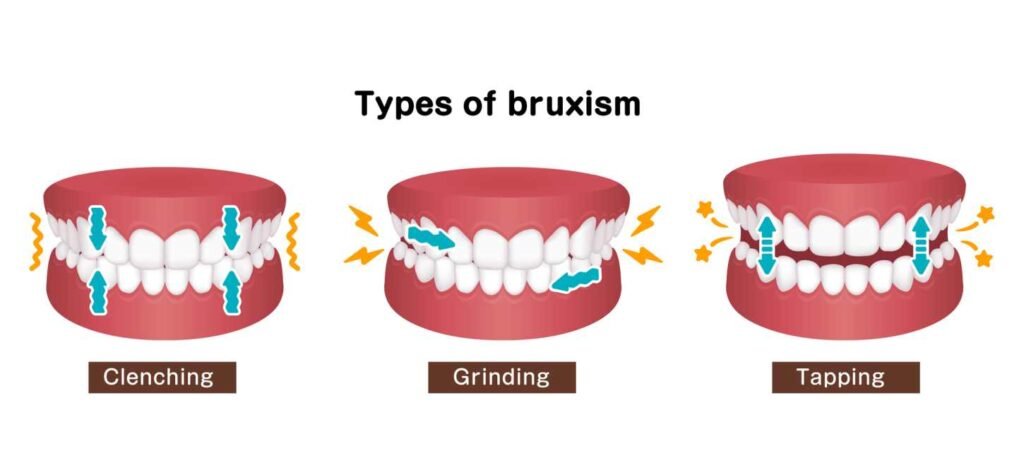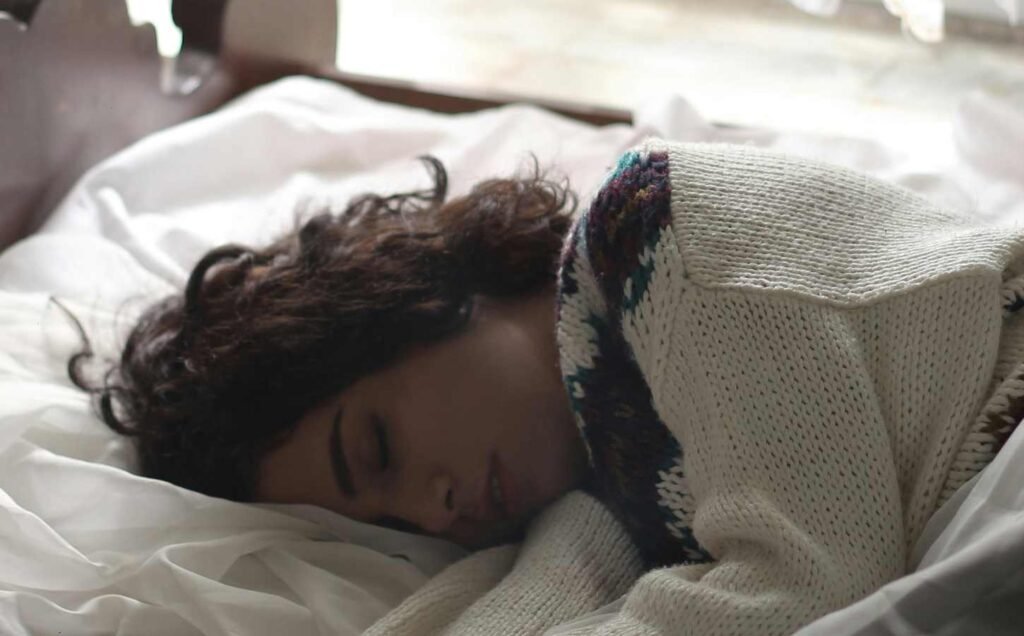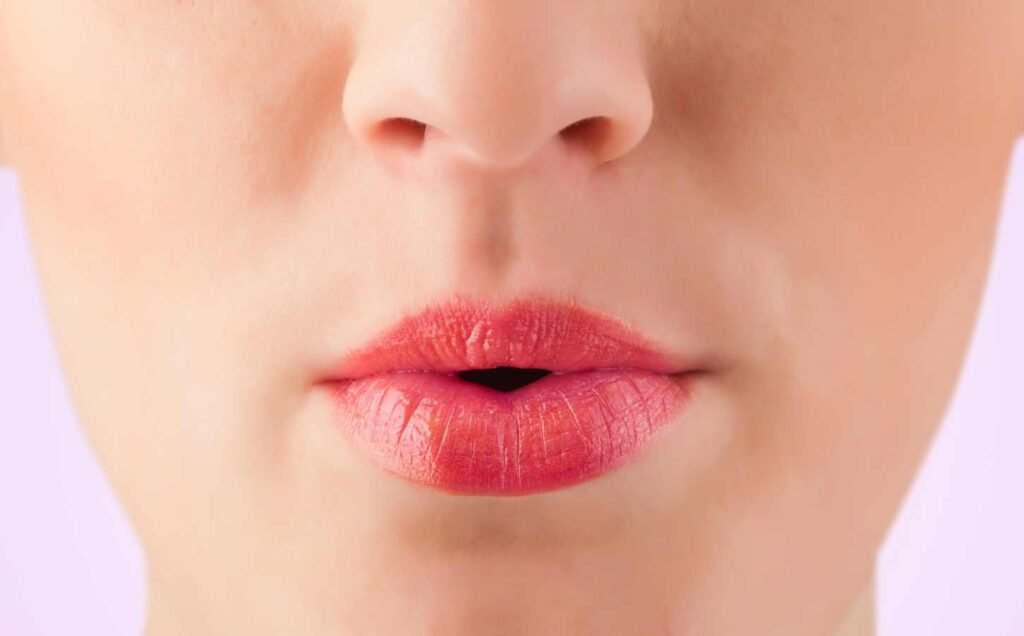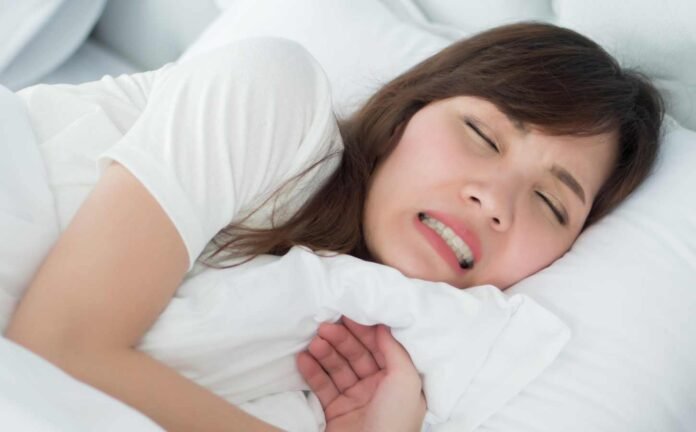Sleep bruxism is a common condition that affects many people worldwide.
Sleep bruxism, also known as nocturnal bruxism, is a sleep disorder characterized by teeth grinding or clenching during sleep, which can cause damage to the teeth, jaw, and surrounding muscles. Sleep bruxism is more common in children, but it can also affect adults.
The cause of sleep bruxism is not entirely clear, but it is believed to be related to stress, anxiety, and sleep disorders. It can also be caused by certain medications, substances, or medical conditions. Sleep bruxism can lead to various symptoms, including headaches, jaw pain, and disrupted sleep. It can also cause tooth sensitivity, enamel wear, and gum recession.

Treatment for sleep bruxism depends on the severity of the condition and the underlying cause. It may include stress management, relaxation techniques, and dental devices such as mouthguards. In severe cases, medication or therapy may be recommended. It is essential to seek treatment for sleep bruxism to prevent further damage and improve overall quality of life.
Understanding Sleep Bruxism
Definition and Types
Sleep bruxism is a condition where a person grinds or clenches their teeth during sleep. It is a type of bruxism, which also includes awake bruxism, where a person grinds or clenches their teeth during the day. Teeth grinding and clenching can occur separately or together during sleep bruxism.
Prevalence Across Age Groups
Sleep bruxism can affect people of all ages, but it is more common in children and young adults. According to research, 14% to 20% of children and 8% to 10% of adults experience sleep bruxism.
Identifying Symptoms and Signs
The symptoms and signs of sleep bruxism can vary from person to person. Some common symptoms include headaches, jaw pain, and tooth sensitivity. People with severe sleep bruxism may also experience earaches and sleep disruptions. Dentists can often identify signs of sleep bruxism during routine dental exams, such as worn tooth surfaces, chipped teeth, and receding gums.
To help prevent and manage sleep bruxism, it is important to identify the underlying cause. Stress and anxiety are common triggers, so relaxation techniques and stress management strategies may be helpful. Wearing a mouthguard during sleep can also protect teeth from damage caused by grinding and clenching.
Overall, understanding sleep bruxism and its symptoms can help individuals seek appropriate treatment and prevent long-term dental damage.
Etiology and Risk Factors
Genetic and Biological Factors
Sleep bruxism has been associated with various genetic and biological factors. Studies have shown that the condition has a hereditary component, with a higher prevalence among family members of affected individuals. Additionally, sleep bruxism has been linked to certain medical conditions such as Parkinson’s disease and sleep apnea.
Lifestyle and Environmental Influences
Several lifestyle and environmental factors have been identified as potential risk factors for sleep bruxism. These include the consumption of alcohol, caffeine, and recreational drugs. Smoking has also been associated with an increased risk of developing the condition. Furthermore, individuals who experience high levels of stress or anxiety may be more likely to exhibit symptoms of sleep bruxism.
Psychosocial Contributors
Psychosocial factors have also been implicated in the development of sleep bruxism. Studies have shown that individuals who experience high levels of stress or anxiety may be more likely to exhibit symptoms of the condition. Furthermore, certain personality traits, such as perfectionism and competitiveness, have been associated with an increased risk of developing sleep bruxism.
Overall, the cause of sleep bruxism is complex and multifactorial. While certain genetic and biological factors may play a role, lifestyle and environmental influences, as well as psychosocial contributors, also appear to be important risk factors. By understanding these factors, healthcare professionals can better diagnose and treat this condition.
Associated Conditions
Sleep Disorders and Bruxism
Sleep bruxism is often associated with other sleep disorders, such as sleep apnea. In fact, studies have shown that up to 80% of people with sleep apnea also grind their teeth during sleep. Additionally, other sleep disorders such as insomnia, restless leg syndrome, and narcolepsy have also been linked to sleep bruxism.
Temporomandibular Joint Disorders
Temporomandibular joint disorders (TMD) are a group of conditions that affect the jaw joint and muscles that control jaw movement. TMD can cause jaw pain, clicking or popping sounds when opening or closing the mouth, and difficulty chewing. Many people with TMD also experience sleep bruxism, and it is thought that the two conditions may be related.
Other Medical Conditions
Other medical conditions have also been associated with sleep bruxism, such as gastroesophageal reflux disease (GERD), depression, and obstructive sleep apnea. GERD is a condition where stomach acid flows back into the esophagus, causing heartburn and other symptoms. It has been suggested that the acid reflux associated with GERD may trigger sleep bruxism in some people. Depression has also been linked to sleep bruxism, although the exact nature of the relationship is not yet fully understood. Finally, obstructive sleep apnea, a condition where breathing is repeatedly interrupted during sleep, has been shown to be associated with an increased risk of sleep bruxism.
Overall, while the exact relationship between sleep bruxism and these other conditions is not yet fully understood, it is clear that there is a strong association between them. If you are experiencing sleep bruxism, it may be worth discussing these other conditions with your healthcare provider to see if there is any underlying cause that needs to be addressed.
Diagnosis and Assessment
Clinical Examination
A clinical examination is the first step in diagnosing sleep bruxism. The dentist will look for signs of teeth grinding, such as worn or chipped teeth, jaw tenderness, and muscle pain. The dentist will also ask about the patient’s sleep habits and any symptoms they may be experiencing, such as headaches or jaw pain.
Polysomnography and Sleep Studies
Polysomnography and sleep studies are tests that can help diagnose sleep bruxism. These tests monitor the patient’s brain waves, heart rate, breathing, and muscle activity during sleep. They can also help identify other sleep disorders that may be contributing to the teeth grinding.
Role of Dental Evaluation
Dental evaluation is an important part of diagnosing sleep bruxism. The dentist will examine the patient’s teeth and jaw to determine the extent of the damage caused by teeth grinding. They may also take x-rays to get a better look at the teeth and jawbone.
Once a diagnosis of sleep bruxism has been made, the dentist can work with the patient to develop a treatment plan. This may include wearing a mouthguard at night, practicing relaxation techniques, and addressing any underlying sleep disorders.
Consequences and Complications
Dental and Oral Health Impact
Sleep bruxism can have a significant impact on dental and oral health. The constant grinding and clenching of teeth can cause wear and tear on the tooth enamel, leading to tooth sensitivity, chipping, and cracking. In severe cases, it can even lead to tooth loss. Dental implants and missing teeth can also be negatively impacted by sleep bruxism, as the constant pressure and movement can cause damage to the surrounding tissues and bone.
Psychological and Social Effects
In addition to the physical impact, sleep bruxism can also have psychological and social effects. The noise of grinding teeth can disturb sleep partners, leading to relationship issues and disruptions in sleep patterns. It can also cause embarrassment and social anxiety, as the sound of grinding teeth can be loud and noticeable in public settings.
Long-Term Health Issues
If left untreated, sleep bruxism can lead to long-term health issues. Chronic headaches and jaw pain are common symptoms of sleep bruxism, as the constant tension and pressure on the jaw can cause muscle strain and inflammation. This can also lead to temporomandibular joint disorder (TMD), a condition that affects the joint connecting the jawbone to the skull. TMD can cause pain and discomfort in the jaw, face, and neck, and can even lead to difficulty opening and closing the mouth.
Overall, sleep bruxism can have a significant impact on dental and oral health, as well as psychological and social well-being. It is important to seek treatment if you suspect you may be suffering from sleep bruxism to prevent long-term complications.
Management and Treatment
Behavioral and Lifestyle Modifications
Behavioral and lifestyle modifications are often the first line of treatment for sleep bruxism. These modifications aim to reduce stress and anxiety, which can trigger teeth grinding during sleep. Some recommended modifications include stress reduction techniques such as meditation, yoga, and exercise, as well as avoiding caffeine and alcohol consumption before bedtime.
Dental Devices and Mouth Guards
Dental devices and mouthguards are commonly used to manage sleep bruxism. These devices are designed to protect the teeth from grinding and clenching during sleep. A custom-fitted mouthguard is recommended as it provides better protection and comfort compared to over-the-counter options.
Pharmacological Interventions
Pharmacological interventions may be prescribed in severe cases of sleep bruxism. Medications such as muscle relaxants and Botox injections can help relax the jaw muscles and reduce teeth grinding during sleep. However, these medications may cause side effects and should only be used under the guidance of a healthcare professional.
Alternative Therapies and Approaches
Alternative therapies such as cognitive-behavioral therapy (CBT) and biofeedback may also be used to manage sleep bruxism. CBT aims to change the negative thought patterns that may contribute to stress and anxiety, while biofeedback helps individuals become more aware of their muscle tension and learn to control it.
Overall, the management and treatment of sleep bruxism should be tailored to the individual’s needs and severity of the condition. It is recommended to consult with a healthcare professional to determine the most appropriate treatment plan.
Preventive Measures and Education
Awareness and Early Intervention
Early detection and intervention are crucial in preventing the progression of sleep bruxism. Healthcare providers should educate patients and parents about the signs and symptoms of the condition. Children should be encouraged to report any jaw pain, headaches, or tooth sensitivity to their parents or healthcare providers.
Patient and Parental Guidance
Patients and parents should be educated on the importance of maintaining good oral hygiene and avoiding habits that can exacerbate sleep bruxism such as chewing gum, biting nails, or using tobacco products. Patients should also be advised to avoid consuming stimulants such as caffeine and alcohol before bedtime.
Collaborative Care Strategies
Collaborative care strategies involving healthcare providers, specialists, and therapists can be effective in managing sleep bruxism. Patients may benefit from cognitive-behavioral therapy, stress management techniques, and relaxation exercises. In severe cases, a dental appliance such as a mouthguard may be recommended to prevent tooth damage.
Preventive measures and education are essential in managing sleep bruxism, especially in children and adolescents. Healthcare providers should work closely with patients and parents to identify and address the underlying causes of the condition. With early intervention and collaborative care, patients can effectively manage sleep bruxism and prevent long-term complications.
Frequently Asked Questions
What are the common symptoms of grinding teeth during sleep?
Grinding teeth during sleep, also known as sleep bruxism, can cause a range of symptoms. Some of the most common symptoms include headaches, jaw pain, tooth sensitivity, and worn-down teeth. Many people with sleep bruxism also experience disrupted sleep patterns and fatigue.
What are the main causes of sleep bruxism?
The exact causes of sleep bruxism are not fully understood, but several factors may contribute to its development. Stress and anxiety are known to increase the likelihood of teeth grinding during sleep, as are certain medications and substances like caffeine and alcohol. Sleep disorders, such as sleep apnea, may also be associated with sleep bruxism.
How can one naturally reduce teeth grinding during sleep?
There are several natural remedies that may help reduce teeth grinding during sleep. These include practicing relaxation techniques, such as meditation or deep breathing exercises, avoiding stimulating substances like caffeine and alcohol, and maintaining a regular sleep schedule. Wearing a mouthguard or splint while sleeping may also help protect teeth from damage caused by grinding.
What are the available treatments for bruxism?
There are several treatments available for sleep bruxism, depending on the severity of the condition. In mild cases, lifestyle changes like those mentioned above may be sufficient to reduce symptoms. For more severe cases, a dentist may recommend a custom-fitted mouthguard or splint to protect teeth from damage. In rare cases, medication or behavioral therapy may be recommended.
Can bruxism be fully cured, and if so, how?
While there is no cure for sleep bruxism, many people are able to manage their symptoms effectively with the help of lifestyle changes, mouthguards, and other treatments. In some cases, sleep bruxism may resolve on its own over time.
What does typical bruxism damage look like on teeth?
Teeth grinding during sleep can cause a range of damage, including worn-down enamel, chipped or cracked teeth, and even tooth loss in severe cases. Dentists may be able to detect signs of bruxism during routine checkups, such as flattened or worn-down teeth, and can recommend appropriate treatment to prevent further damage.
Reclaiming Deep Restful Sleep: The Magnesium Deficiency Solution

Discover the natural solution to deep, restful sleep and magnesium deficiency through the efficacy of PUREDOSE® Micelle Liposomal Magnesium. This superior bioavailable supplement promotes optimal sleep support and overall well-being.
Continue reading: Reclaiming Deep Restful Sleep
Discover the Tongue Trick for Better Sleep: The U.S. Marine’s Secret

This tongue trick is designed to help you fall asleep in just two minutes by stimulating a specific nerve in your tongue, known as the “sleep nerve,” to promote relaxation and better sleep.
Continue reading: Discover the Tongue Trick for Better Sleep





